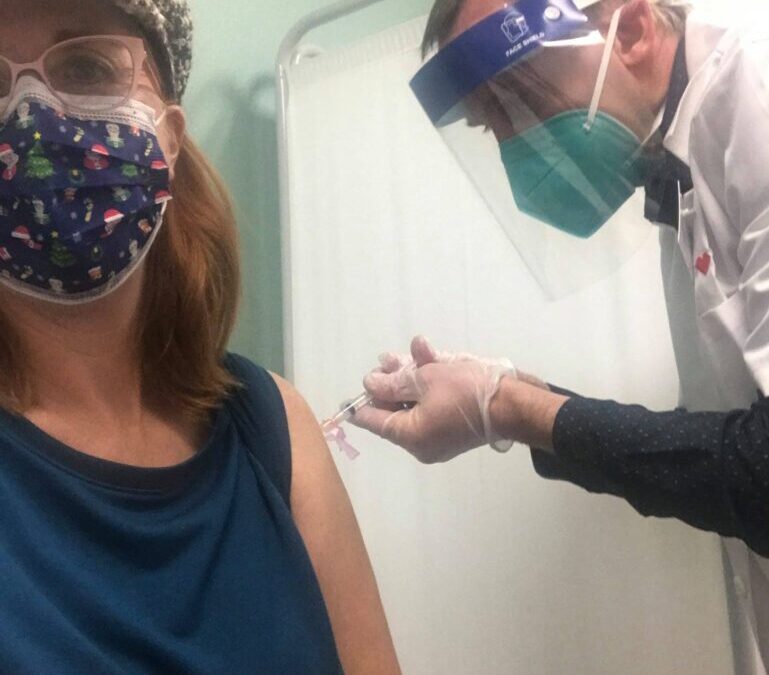“Guess what?” a friend who works in health care asked as we talked on the phone.
“You’re running away to a tropical island for a month?” I guessed, picking what sounded best to me right now.
“No. I got the COVID vaccine!” she said, her voice dropping to an excited whisper like she had just found out she was the winner of last night’s Powerball and didn’t want anyone else to know just yet.
“Me too!” I said. “My arm’s a little sore today, but that happened with the flu shot too.”
For a few minutes we shared stories about what worried us personally about getting a vaccination, the silly fears we had, the anxiety of being first, but also the guilt about being at the head of the line when there were people in our community who need it more than we do.
My 87-year-old friend living in a senior apartment. The neighbor caring for her elderly mom. Our 100-year-old hospice volunteer. The people we know who are older, sicker, and more vulnerable than us.
I remember my mom telling me about growing up in the 1940s when the polio epidemic raged each summer. How she played in the yard as a young girl, with just her brother. Friends couldn’t come over to visit. The local pool and movie theater closed because polio was the invisible enemy, waiting to paralyze or kill. How the fear of doing something normal like going to the store or attending church might mean a lifetime on an iron lung, or worse.
But even in 1952, the worst year of the polio epidemic, the death rate was 3,145 people. As this year begins, we’ve lost 346,000 people in the United States, a number impossibly painful to think about. In less than a year, more Americans have died of COVID-19 than died in World War I, the Korean War and Vietnam War combined. We’re getting close to the total number of Americans lost during World War II.
We read stories in the news each day about those who have died: a 41-year-old congressman-elect in Louisiana about to be sworn in to serve his country; a couple married for over 60 years; six people in an extended family leaving young children without anyone else to care for them. We see the exhausted faces of hospital staff pleading with us to help them slow the spread, clips of filled emergency rooms and makeshift morgues on the nightly news.
It is easy to ignore the news and think that’s not happening here until it happens to someone you love. It’s hard to watch a friend cry as she tells me her dad is in YRMC, fighting for his life, but she can’t go see him or hold his hand.
It’s heartbreaking to pass around a card for a coworker who lost both parents a few hours apart to this disease. Or to sign up to make meals for another coworker who lost a brother two weeks after he got sick. Or to feel anxious for three friends at home, sick with the virus this week, who are worrying about the folks they’ve been around and cared for at their jobs.
It does feel a little like winning the lottery to get this vaccination. As healthcare workers, we’re willing to be the first to step up and offer our arms to try to slow down this pandemic. But we also know this is just the beginning of what it’s going to take to make 2021 less devastating than last year. My dad just got the news he’s in the next group to get the vaccine. I’m grateful he’s willing to step up too. I hope when the time comes, you’ll hold out your arms and join us.

